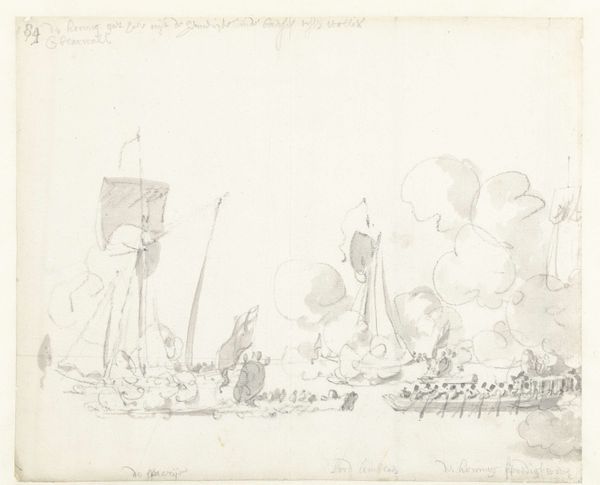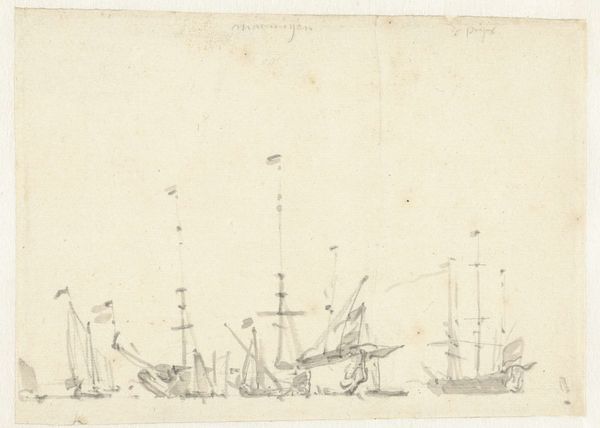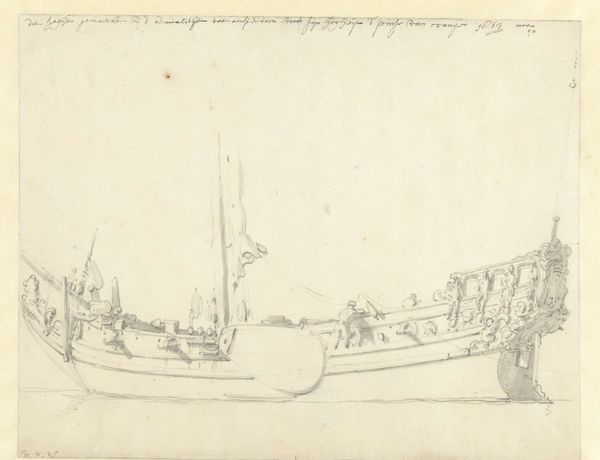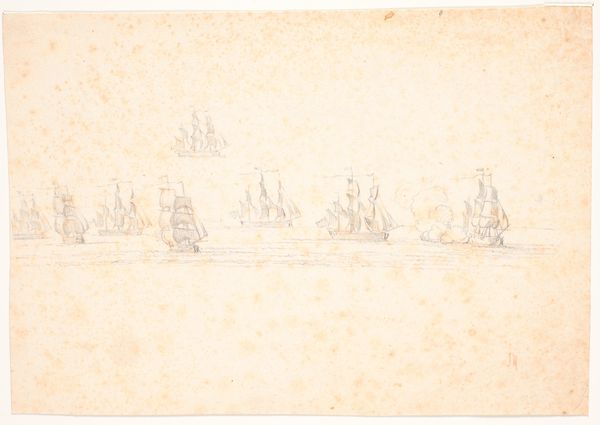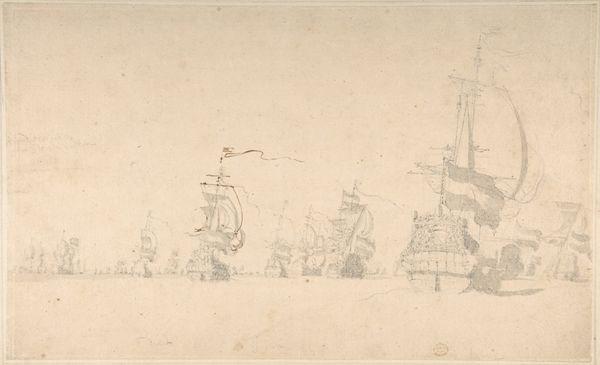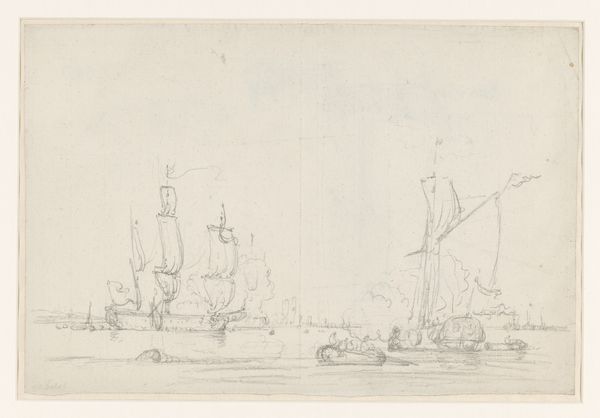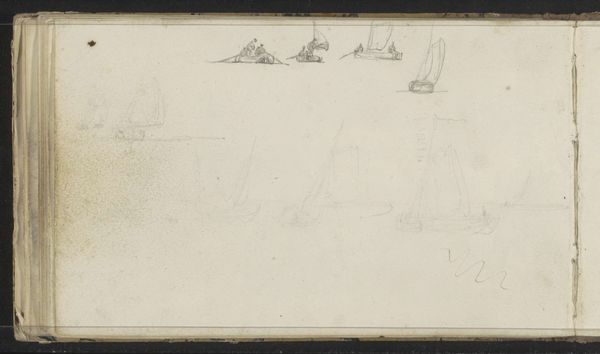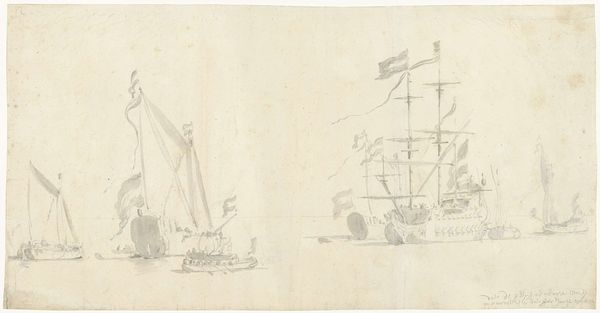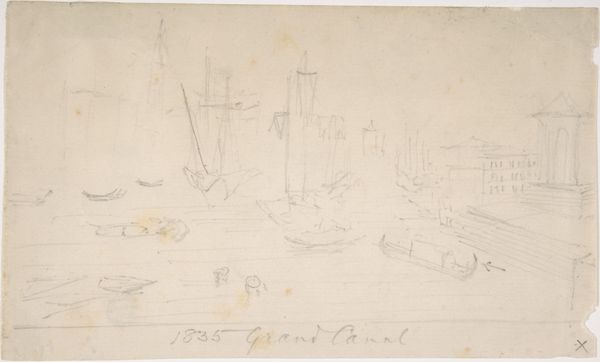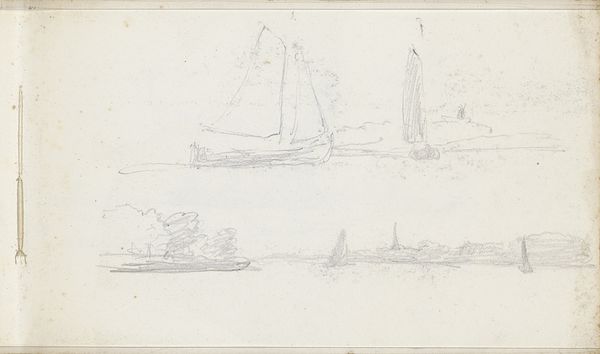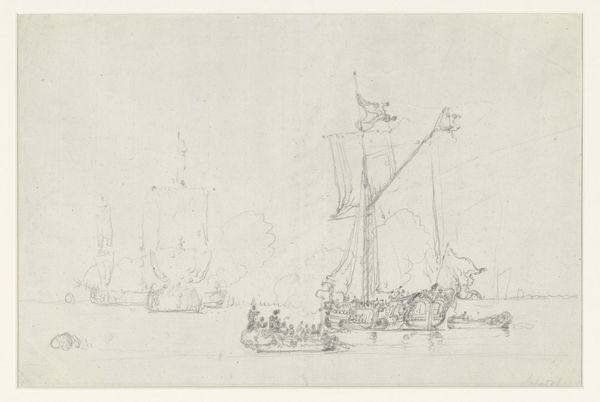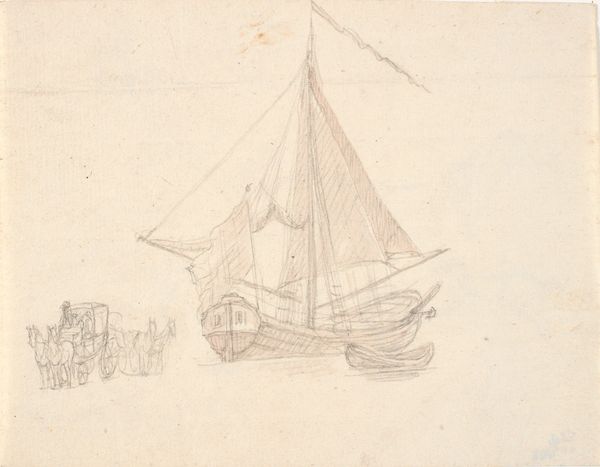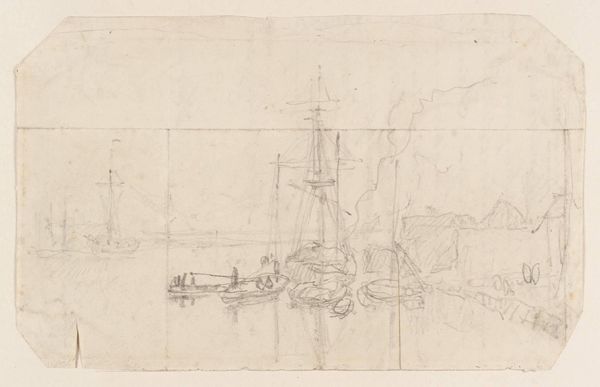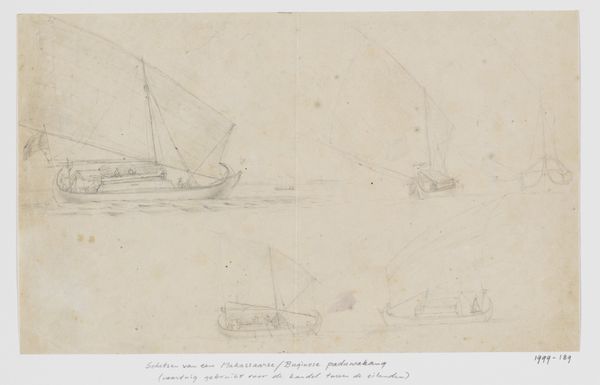
drawing, print, paper, graphite
#
drawing
#
dutch-golden-age
# print
#
landscape
#
paper
#
graphite
#
realism
Dimensions: 205 × 317 mm
Copyright: Public Domain
Editor: This drawing, "Two Frigates Under Full Sail," is by Willem van de Velde II. It’s undated, rendered in graphite on paper. It has an ethereal quality, almost dreamlike. What do you see in this piece? Curator: I see more than just ships; I see power and its complex relationship with global trade, specifically through the lens of Dutch maritime dominance during its Golden Age. Consider what "full sail" implies: a nation propelled by relentless ambition, arguably at the expense of colonized lands and peoples. What do you make of the medium—drawing versus painting? Editor: That’s an important distinction. Being a drawing, there's a sense of immediacy. Like a quick study or sketch rather than a formal portrait. Does this inform our reading? Curator: Absolutely. The sketch form gives insight to artistic practices and the political implications that visual rhetoric represents in art from this time period. Maritime prowess facilitated the transatlantic slave trade. Could these 'innocent' ship portraits unwittingly celebrate this history of oppression? Editor: So, you're asking us to consider the ethical dimension embedded even in seemingly benign depictions of these ships? How the aesthetic admiration might overshadow their history? Curator: Precisely. This wasn't simply about capturing likeness, but shaping a specific narrative of power, control and colonial expansion. We must approach these artworks, and historical lenses with care and acknowledge what's being excluded from view. What can the student body learn and apply when looking at these art objects today? Editor: I think it means engaging more actively and interrogating art history. Appreciating skill, while being sensitive to underlying ideologies. Curator: Exactly. Questioning the narratives and voices which have been marginalized. Art isn't created in a vacuum; it always responds to and shapes the world.
Comments
No comments
Be the first to comment and join the conversation on the ultimate creative platform.
